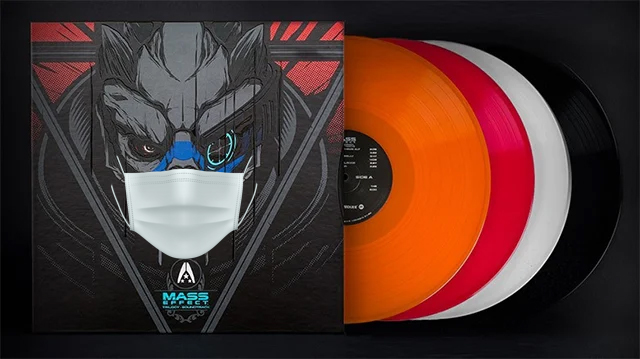Covid-19 has affected everyone from the underpaid delivery workers risking themselves on the front lines to their bosses raking in the profit. Gaming has not been unfazed by this momentous shift either and while its big impacts have been covered, it’s easy to forget about the other ripple effects that aren’t as immediately apparent. Video game composers are one of those pillars of the industry that are a little easier to forget amidst the chaos. And even if they are bards by trade, no jingle they spin can give them full immunity against the virus.
While not always true, big video game scores are likely widely regarded as huge orchestras where people get inside of a large room and gracefully blow into some brass or bang on some drums in order to add audio to our favorite titles. That’s not as possible now for obvious reasons and composers are forced to adapt as the music has not stopped.
Limitations
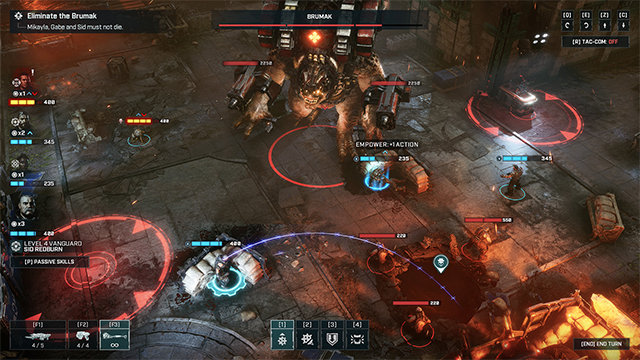
Edward Patrick White, known for the recent Gears Tactics soundtrack, recalled a certain Steven Spielberg film while explaining how these newfound processes, uh, find a way.
“Plans have had to change but I don’t feel that limitations have stifled projects in development,” he said. “There’s that great line in Jurassic Park about how ‘[life] finds a way’ and creativity is no different. Creativity finds a way. Are we going to be recording large ensembles in the same way as we did previously — no. But that’s only problematic if you’re completely reliant upon the traditional orchestral ‘large-format’ recording approach when creating music for video games.”
ALSO: Gears Tactics Review | Changing genre without losing identity
White has taken to so-called guerrilla tactics to get music done by using digital instruments as filler and then getting other soloists to perform those pieces so he can dub it in later. It’s an unorthodox method but one that can lead to interesting results. He even started recording his family and household objects to create unique sounds he probably wouldn’t have thought of if he wasn’t stuck at home.
Approaching the same problems from a new, albeit forced, perspective can also lead to people exploring alternate ways that might help in the overall creative process. Restrictions can ironically be creatively freeing as sometimes it leads to things like Silent Hill’s oppressive fog or Mario’s bushy mustache. Sam Hulick, the composer most famous for his iconic work on the original Mass Effect trilogy, explained how these sorts of limitations have helped artists thrive.
“Anytime there are constraints on how artists are able to create and produce, I think it forces us to be more creative in our approach,” said Hulick. “Full orchestral recording may be off the table or very difficult to come by at the moment, but there are other approaches to breathe life into musical pieces recorded with virtual instruments, such as remotely recording soloists and layering them into the mix. I don’t think any aspect of this will detract from the quality or emotional impact of video game music, but it’ll certainly take a bit more MIDI wrangling on the composer’s part to ensure the virtual orchestra parts sound as good as possible!”
Size does matter
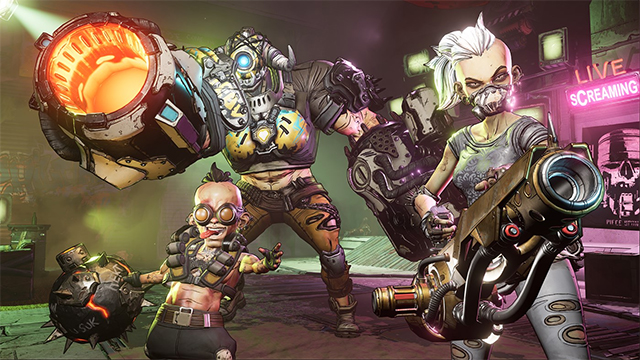
But isolating means something different to Brian Trifon and Brian Lee White of Finishing Move, the composition duo that’s had music in Borderlands 3, Crackdown 3, Halo Wars 2, and more. They’re a small operation and they’ve been able to avoid some of the logistical problems that get added on with each new person or company that gets added to the process. In a sense, they said they feel somewhat vindicated by their size.
“If anything, the situation has validated our approach to production and operating a small business,” they admitted. “This means staying lean by forgoing expensive commercial studio leases, investing in talent and capital that makes a direct difference in our output, and always looking towards optimizations in our workflow that reduce potential stressors. Of course, our way is not applicable or practical for everyone, but it works well for us and has held up so far.”
ALSO: Borderlands 3 Review | More of the same
“So far” is a key part of that sentence. While video games have been doing relatively well during the pandemic — which was no doubt aided by some coincidentally killer titles — nothing is completely bulletproof.
Unemployment is ludicrously high and hitting historic levels in the United States. The number of cases isn’t flattening either. More cases and a shakier economy isn’t a good combination. Money is already tight and, while that’s going to hurt average consumers more, that might cause some publishers to cut costs or other studios to close, which would eventually reduce the available jobs out there.
MIDiA Research’s Karol Severin has described the “Covid bounce,” which is not a tacky dance move, but instead is a term to describe how the industry is posed to recede if companies spend their quarantine-inflated profits too early after the dust settles. According to her, this would create a new normal that is lower than than the pre-pandemic normal, which wouldn’t be good for anyone. Finishing Move was also seemingly looking into the future at this predicted bounce, too.
“It’d be ridiculous to think, ‘video games will always do great because you can play them at home while you socially distance,’” stated Finishing Move. “Entertainment is a for-profit business, and if people don’t have the money to buy the next big AAA blockbuster, that will impact us as composers sooner or later.”
It already has affected some composers, but Hulick is trying to help using the ReelCrafter platform he created with Sara Pocius. They’ve re-opened their free tier of the service, which should help them get back on their feet since it tracks who listens and allows them to more easily demo their compositions. It’s a small, but welcome gesture to those who have hit a bump in the road.
The mental toll
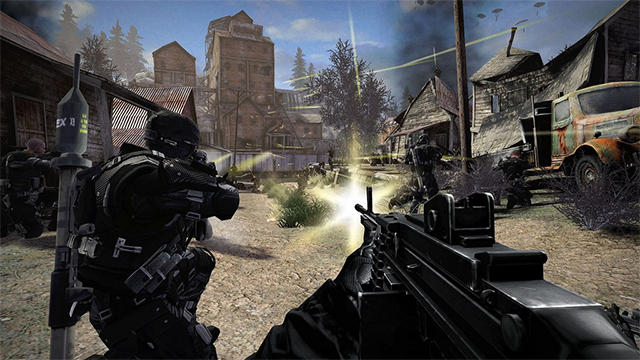
The pandemic hasn’t negatively impacted Hulick, Finishing Move, or White’s creative process as much, given how they specifically make music. White even said he thinks he’s “having more creative connections” now. However, Tree Adams, who did the score for Zipper Interactive’s PS3 shooter MAG among various other films and television shows, said it was better to work in the same room as people, but focused more on the mental aspect of this all. He’s been streaming and playing songs with his teenage kids every Thursday to keep sane, which is only part of his routine.
“I’ll do a Zoom call every once in a while with my team,” he said. “I’m more conscious about picking up the phone and checking in with the people I work for too. I think it has been hard for us humans who are inherently social to be distant from one another and so it takes a little more effort now. On the other hand, I suppose us composers were always cave dwellers of sorts anyways so on some level things haven’t changed that much.”
Despite being “cave dwellers,” these check-ins are apt for a time like this. Americans, according to Healthline, are stating that they’re feeling increasingly stressed and depressed, especially minorities, women, adults under 34 years old, and those with pre-existing health conditions. Fear, financial stress, and isolation are a bad combination any time of the year and exponentially worse during a pandemic when all of those aspects can collide catastrophic ways. The CDC even recommends that people connect with others to help fill the void of in-person socializing.
Reaching out to others is a good habit to continue doing after this ends and changing for the better can be one of the silver linings a traumatic event like this can have. So how should composers and the industry at large improve going forward?
Adams said that he hopes this will cut down on unnecessary meetings and open people up to work remotely more often. Hulick thinks this experience will help prepare people for future bumps in the road. White relayed his worries about large-format recording studios, orchestras, and session musicians and how they’ll potentially be devastated and that “shouldn’t be understated.”
However, there was a common theme of perseverance. The job must still get done and creativity will have to overcome the circumstances. That’s the artistic side that’s common across disciplines.
The common human element
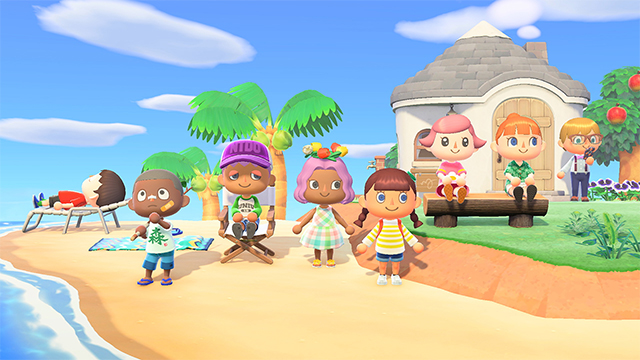
But there was another point that went for an even broader audience: humanity as a whole. The lessons composers and the video game industry can skim from this also appeal to our human nature and how we should come out of this as stronger people that better appreciate our art and those artists.
White explained how we’ve all depended on art like film, TV, movies, books, and video games to get us through these times. And that can’t be overlooked as documentaries like The Last Dance, games like Animal Crossing: New Horizons, and television shows like Avatar: The Last Airbender (thanks, Netflix) have made staying inside more bearable. Art has been an invaluable escape and that should push us to better appreciate those creating said art, which obviously includes the work composers do.
“One hopes that as we come out of this, these throwaway cultural products will be appreciated as being as fundamental to the human experience as art or literature,” he said.
Finishing Move, instead, looked at the artist side of the equation. Citing musician friends that can no longer make an income touring for the foreseeable future, they spoke about how the industry should plan more effectively to help aid its creatives.
“Telling everyone to pivot to YouTube and a Patreon is not a workable or sustainable solution for an entire population of artists and creators,” said Finishing Move. “We must do better if we want to preserve the arts and its incredibly positive impact on society.”
ALSO: Sony, Naughty Dog, and more tweet in support of BlackLivesMatter
The duo then ruminated on the aforementioned perseverance of creative people that will, in their eyes, result in higher quality content on the other side given the creative workarounds people are currently doing. Adams, however, went beyond this and envisioned a future that utilizes the widespread empathy found in the pandemic and recent protests and creators more compassionate video games.
“If this pandemic combined with the outrage around the globe over the killing of George Floyd has not taught us one thing, it is that we need to take care of one another and listen to each other,” said Adams. “I hope that we learn to be more compassionate as a society and that this manifests itself in the video game industry and the entertainment world as a whole. There is always an ‘us versus them’ narrative and I see how that imbues a story with tension, but we somehow manage to sanction things like hatred, murder, carjacking and a whole assortment of other crimes in the process. Somehow, we need to teach our children to love and not to hate.”
These are ambitious visions for the future and are undoubtedly shared by many outside of the music making profession. And while their perspective is valuable, the commonality of their hardships and post-pandemic wishes point out how many people are going through the same thing and want a better tomorrow. Composers have been able to weather the storm in some unique ways, but they’ve had to isolate at home and worry about their coworkers and family like everyone else. Their isolation just might include more instruments.
